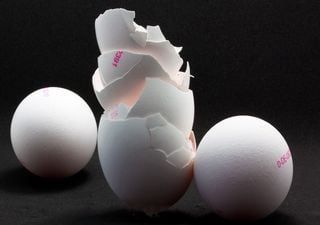According to a recent study, a trip to Mars could be dangerous for the health of astronauts with the technologies available today, in particular due to a risk of deterioration of their renal function.
Space travel poses a health risk
We already know that travel in space, outside of terrestrial gravity, induces a health risk astronauts. Muscle atrophy, loss of bone mass, cardiac weakening, there are many consequences on physical health of a stay of a few days or a few weeks outside of Earth.
Experts show that eggshells recover rare earths for a greener energy transition!

The kidneys are also sensitive to this change in environment, a lesser known but equally dangerous consequence for astronauts. To understand why kidney functions are so affected by space travela team of researchers carried out various experiments on the subject.
In particular, they carried out analyzes of astronauts who stayed on the ISS (International Space Station) and carried out spaceflight simulations with mice in order to observe the impact of long stays on health, because data is still lacking today and each discovery is very important for anticipate the risks of future space flights.
Amazing: could our planet Earth have been flat?

Indeed, even if they are in space, astronauts heading towards the International Space Station are partially protected from the harmful effects of cosmic radiation. by the earth’s magnetic fieldwhich will not be the case, for example, for astronauts heading to Mars.
Towards a loss of kidney function during a trip to Mars?
Thus, the scientists in charge of this study recently published in the journal Nature Communications exposed the mice to doses of radiation equivalent to what an astronaut would receive. during a trip lasting 1.5 to 2.5 years to Mars. The results of these tests show that in all cases, animals and humans suffer from space conditions, but also that the consequences are significant for the kidneys.
Summer arriving soon: what if an intense heatwave hits France by the end of the month?

Indeed, after less than a month in conditions similar to those of a space trip outside the influence of the Earth, we observe arenal tubule trophy in the mice tested, tubules which are usually responsible for the balance of calcium and salt in these vital organs. This malfunction would ultimately cause the formation of kidney stones. The main cause of this dysfunction comes from the absence of gravity, more than from radiation according to this study.
Experiments carried out on mice also demonstrated that a longer stay in space, of a duration similar to that on Mars, generated much more serious and worrying consequences for the kidneys.
Indeed, animals that suffered these conditions for a longer period of time emerged from the experiment with permanently damaged kidneys and a functional loss of these organs.
As a result, astronauts traveling to Mars would have ultimately need to be dialyzed, a risk that it is not possible to run for volunteers leaving to explore the red planet. The results of this study therefore show the importance of developing effective protections against the effects of long space journeys upstream of any technical and technological planning.










